How to Break Up with your Critique Partner
Building The Writing Playground Part II: HTTP://WWW.COMPLETELYCONFUSED.COM
I’ve always been hesitant to write articles for my chapter newsletter or the Playground. I simply don‘t know what I‘m qualified to teach anyone. Who am I to tell you how to do anything writing related? I‘m not published. I haven‘t been initiated into the secret society and given the handshake to unlock the NYT bestseller list. (Though if you have – call me.) I‘m just me. A writer fighting the battle on a daily basis to get words on a page that someone might want to read. And pay me for. Don‘t forget that part.
My chapter, Heart of Dixie, encourages everyone to provide workshops or craft pieces, regardless of where they are in their writing journey. Everyone has something to share, even if they don‘t think so. So what do I have to offer? Perspective, maybe.
In my years of attending conferences and reading everything I can on this business, there‘s one piece of information I‘ve heard repeatedly. You can have an interesting story, lively characters, perfect grammar, but if you‘re missing this piece, odds are you will have a harder time being successful – voice.
I don‘t know how many spotlights and workshops I‘ve been to where an editor stood up and said what really got them fired up was an unique and fresh voice. This usually elicits mutters from the crowd. How do you make your voice unique and fresh? The editors never tell you that part as voice is one of the few things you just can‘t learn.
Along my curvy path toward publication, voice is one thing that has been consistently mentioned as a strength. Not so much at first, but as time has gone on and I‘ve gotten more comfortable with my writing, my voice has become more distinct. Even in rejection letters, I get a lot of compliments on my voice, even if the premise doesn‘t fly.
If you are unsure about your voice, how do you go about finding it? I can‘t give you a treasure map that will lead you straight to it, but I can tell you about some things I‘ve done that have helped me get in touch with my voice.
Write. I know, you‘re saying ―duh― at this point, but just hold on and let me elaborate here. Write as much as you can. Try not to hold back. The only way to really know what you can do is to just let it flow without internal editors and outside influences. Write, then go back and read it and see what you can find.
Listen. When I was first writing, thoughts or ideas would come into my head and I would edit it out. I thought it was too much. I was supposed to be writing a serious romance here. The quirky neighbor down the hall with S&M tendencies did not fit in to my angst-ridden vampire book. Sex scenes were supposed to be tingle-inducing and sensual, not funny. So I ignored the little voices and wrote the way I thought I should. You will not be surprised to find that my earlier stuff was a little flat. Nothing special. I was editing my voice out of the story without even knowing it. They‘ve already bought Nora. They don‘t need a Nora clone. They want something new, so stop writing what you think editors want.
Ask. If you have critique partners that read your work, ask them about your writing and style and what stands out to them about it. Honestly, I hadn‘t identified that I even had a voice until one of my CPs pointed it out. I was shocked. The thing they identified as making my work unique and distinctly mine was the one thing I hadn‘t given much thought to. And honestly, you shouldn‘t give much thought to it. Your voice should flow naturally.
Blog. If blogging isn‘t your thing, write in a journal. It doesn‘t matter if anyone reads it, but do some kind of work where you are writing as yourself, not as a character. Let the words flow. I have to say that my voice really developed and was honed by my weekly Writing Playground blog. Every Friday I have to come up with something to talk about. This isn‘t my characters talking, it‘s just me. My voice. It wasn‘t long before people pointed out that you could read the blogs without names and know exactly which one of us wrote it. I even had someone tell me that if I could just capture the voice in my blogs and turn it into a book, I would be set. Easier said than done, but it gave me something to think about. This was obviously a strength of mine that I couldn‘t ignore.
Let Go. I think the breakthrough book for me and my voice was a story where I added this snarky secondary character that could say or do whatever he wanted because no one could hear or see him but the heroine. I never let my main characters do this because the hero was supposed to be sexy and alpha and the heroine identifiable. At least that‘s what I thought. I always felt restricted with what I could or couldn‘t do with them because they had to be perfect. The ghost, however, could say whatever he wanted. And boy, did he! My voice really and truly flowed through him. Everyone who read it and knew me well said that they could “hear” me in this character. DING DING! Voice. Right there. Found it.
Explore. Once you have a solid idea of what your voice is, play with it. If you tend to write with a sensual tone, run with it. If you write snappy, light stuff, make the most of it. Don‘t try to write something that doesn‘t work for you just because it‘s what‘s popular at the moment. Force-fitting your voice isn‘t useful and it won‘t help you grow as a writer. You have to embrace your voice once you identify it. Make the most of it. Explore what you can do with it and judge the reactions and feedback you get. You may find you get more positive contest feedback.
Write Again! When you have a grasp on your voice, write like mad. Cherish what is different about your stories and your writing and use it to produce the best work you possibly can. Once I realized that there was a quirk and a snarkiness to my writing that really worked for me, I went with it and came up with some of my best books and ideas yet.
I can‘t give you a step by step map that will lead you directly to your voice, but hopefully the ideas above will help you explore and find it on your own. The most important thing is that you embrace who you are as a writer and use it to your advantage instead of letting it hold you back. It makes all the difference.
Congratulations – you’ve done it! You’ve mailed off your baby, be it a query, a partial or a full manuscript. Somewhere an agent or editor has it in her hot little hands, and I’m sure she just can’t wait to call you and tell you she wants to buy it. Er…or not. Odds are, even if it’s the best book she has ever read, you’re not going to hear back for a while. First you have to wait in line. Then, she’ll read it. She’ll have staff readers or assistants read it again. Then maybe a senior editor or agent will read it. If you’re lucky she will put together revision suggestions (because although you might disagree, you aren’t perfect) or you’ll get the dreaded “R” back in your SASE.
Generally, unless you get a magical 3-minute response to your query (e-submissions have made it possible to get rejected even faster!) you’re going to have time to kill. What do you do with the three, six, even twelve months or more it might take before you hear back? Sitting around thinking about it will make you crazy. Here are Andrea’s top ten things to do while you’re waiting:
Write another book. This is important. You can’t just sit around for months waiting for the book you’ve sent out to sell. You have to let go, move onto the next project. If you get rejected, you need the reassurance of having another book to get out there to pull you out of your funk. If you sell, you’ll need to have some book ideas to pitch to your editor or agent. They don’t want to buy a one hit wonder. Besides, the more you write, the better you get at it. Whether you get a rejection or a sale call, it never hurts to work at being a better writer.
Clean up the manuscript. This is really only in the case of queries or partials (if you’ve sent the full, it’s a little late for all this). Take the time to really scrub your work beyond the first three chapters. How many people out there have won a million contests, but never sell? That’s because they can write an awesome chapter or two. Once you get to chapter twelve, there are issues. Don’t be that person. There is nothing more heart-wrenching than to get a request for a full off a partial, then to get rejected because the rest of the book doesn’t meet the expectations they had for it. (Trust me, I know.)
Brainstorm. If you already have a good idea, by all means, go straight to number one and get to writing. If not, take some time to come up with some new book plots. If you keep a file of ideas, go through those. Sit quietly and write down anything that comes to mind, even if it seems silly. Ask yourself “what if…?” Meet with some fellow writing friends and toss around ideas. Even the slightest offhand comment can trigger an idea. Go from there and see what you come up with. I know I always feel better when I have a full idea file.
Read for Research. Editors always ask that people read and research the lines and publishers they are targeting. If you think your next project might be a Harlequin Blaze or a St. Martin’s paranormal, now is the time to hit the bookstores. Read what they’re publishing (i.e. buying) and get an idea for the feel of the line. A great book that doesn’t fit the house you’re targeting will not sell. Simple as that.
Read for Fun. I can’t stress how important this is. Take the time to rejuvenate your love for the written word (not the ones you agonize over). Grab a few of your favorite author’s latest releases and enjoy them. Also take the time to read some books outside of your chosen writing genre. Sometimes getting your head out of say, erotica-mode, for a while and enjoying a romantic comedy or an urban fantasy can be a refreshing break. It may also inspire some you to bring some humor or fantasy back to your writing.
Clear your head. Get away from your computer. Do something else for a while. You may just need the mental time away to reorganize your thoughts and start fresh on your next project. Perhaps cleaning out your closet works for you. Maybe going on a cooking or baking binge. Some of us live on take-out while we work and an actual home-cooked meal might be a rare treat. If you have another hobby, like painting or gardening, get out there and enjoy it. You might even find that digging in the dirt is a great way to work out the plot of the next book.
Have some “me” time. Some very smart people have always pressed upon me the importance of “filling the well.” If you have nothing coming in to inspire you, you’ll run out of inspired words to come out. This could be something simple like taking a hot bubble bath or going to see a movie. Get a massage or a pedicure. You could take a weekend getaway to the beach or the mountains. Go back to numbers five and six if you enjoy what you’re doing. Heck, spend an entire day doing nothing but watching a Law and Order marathon. Whatever helps you relax and rejuvenate. Most important, though, is to not feel guilty about it. You need this time.
Clean up your workspace. I know. I said the “c-word.” I only say it out of love. I don’t know about you, but if I am seriously working, my desk and office space (along with the rest of my house, honestly) goes to hell. If I pull my focus away from my monitor for a moment, I am horrified by the food wrappers, empty soda cans, scribbled sheets of paper, unopened mail, seven back issues of the RWR, books I’m supposed to read, and who-knows-what-else that is stacking up, threatening to bury me. I have an uncanny ability to ignore all of this unless it starts to smell. So, take a moment (or an afternoon as the case may be) to clear off your desk. Straighten up your space. File or throw things away. You’ll start your new project off fresh and you might even find it’s easier to think (especially if you’re a visual learner and your brain gets clogged up by the clutter.).
Take a workshop or online class. In between projects is a great time to learn something new. Maybe you’ve always wanted to write a suspense plot, but wouldn’t know a six-shooter from an AK47. I’m willing to bet there’s a class for that. In addition to the plethora of workshops offered at the annual RWA conference, there are several regional conferences and monthly RWA chapter meetings can offer learning opportunities. Many chapters are now offering online workshops as well. Kiss of Death (http://www.rwamysterysuspense.org/) features a monthly workshop for suspense writers. Hearts through History (http://heartsthroughhistory.com/class.htm) is the place to go for historical research. Chapters like Heart of Dixie (http://www.heartofdixie.org/onlineworkshops.html) or Heart of Carolina (http://heartofcarolina.org/) Romance Writers offer a variety of workshops on different topics. Sign up for one and see what you can incorporate into your next book.
Give back. Get involved in your local RWA chapter or with the National RWA organization. If you find you’ve got a little free time on your hands, there are always opportunities to serve the group that does so much to support you. It doesn’t take much to make an impact – write an article for your newsletter, donate research materials to the library, or help plan an event. Contact your RWA regional board members to see if they need volunteers for a committee. Your board will be more than willing (and grateful!) to find something you can help with.
So, there you go – my top ten things to do while you wait. If you take the time to do even a few or all things on the list, you might even forget (for an hour or two, at least) that you have a book out there. You’ll pass the time, be productive, and be fully prepared to tackle the next writing challenge ahead.
How to Break Up With Your Critique Partner
We’ve all been in a relationship that was easier to get into than to get out of. It sounded good at first – maybe he was just too good looking to ignore, funny, smart, or knew how to show a girl a good time. After a while it becomes clear that it’s not going to work out between the two of you. Maybe time has revealed he’s vain, ignorant, dishonest, a slouch in bed or just generally a bad fit. Maybe the time honored mantra of “It’s not you; it’s me” is actually true, and you’re not ready for that kind of relationship, commitment, etc.
So let’s apply this to your relationship with your critique partner. As any author knows, a great CP is as valuable and almost harder to find than a good man. Finding the right mix of honesty, criticism, sensitivity, and encouragement can be near impossible. We all head out into the writing community trying to find our “mate.” Sometimes we succeed and find a CP for life. Sometimes we fail.
You’ve failed, huh? You’ve given it a shot with this person or group of people and it just isn’t working out. Too much feedback, not enough feedback, a schedule that doesn’t suit you…maybe they are just downright mean and are ripping your writing dreams to shreds on a bi-weekly basis. You know you need to find someone else, but how?
First, you need to set aside any guilt you might have over this move. The most important thing to consider in this process is your writing. If the CP isn’t helping your writing process or helping you grow as a writer, they aren’t doing you any good. This is especially true if their criticisms are conflicting with your ability to write. A harsh or poorly given critique can paralyze a writer and that defeats the entire purpose. You need to be a little selfish in this endeavor and think about what is best for you and your writing – not how the CP will feel about it or how you’ll be viewed by the group after you leave.
Unlike breaking off a relationship with a lover, this is business – not personal. That doesn’t mean you should be ugly about it and storm off in a huff, but try to make a clean, amicable break as soon as you can. Personal feelings can become involved no matter how hard you try, so be gentle. You may still have to see this person in the future. Maybe you’re in the same RWA chapter or bump into one another at the mall now and then. You don’t want hard feelings lingering and the romance writing business is a small world.
Once you’ve made the decision to end the critiquing relationship, you’ve got several options of going about it. If you’re lucky, a simple “This isn’t working for me” could wrap things up. Sometimes you have to go a little further. Depending on how long you’ve worked together, this can be awkward, especially if it is just a one-on-one critique pair. I’ve listed four tried and true methods for breaking up with a man that can easily be translated over into breaking up with your CP. Take your pick.
“The Talk.” Sitting down with your CP (given that you aren’t hundreds of miles apart) and telling them in person is a scary, but noble way to do it. Face-to-face over coffee you can tell them that you’ve decided it isn’t working for you. If you have a good relationship with the person outside of critiquing, a smile and an assurance you still want to be friends can be easily conveyed this way.
“The Dear John.” Some of us just can’t deal with a face-to-face encounter when it comes to conflict. A great number of writers are introverts to start with, so verbal expressions of their feelings might get twisted and delivered poorly in person. You might even end up back in the critique group and not even know what hit you. In that case, a well-drafted letter or email might be your best option. You can think about what you want to say, word it perfectly, and even get friends to look it over before you send it if you feel unsure. This method also has a sense of finality to it. Depending on how you word the letter, it doesn’t really give the CP the chance to counter or negotiate for you to stay.
“The Drift.” Some people want to avoid conflict all together and can’t even make themselves write a letter to get out of the situation they are in. The Drift is not my method of choice, but it is sometimes the easiest, especially if you are involved with a critique group online and never see them in person. With the drift, you just slowly back out. Maybe you make an excuse that you don’t have anything done to submit for this round or you’re too busy and sit this one out. You follow up by being slow to respond to email. Make another excuse. Slowly you just fade out and they find themselves asking, weeks later, “What happened to so-and-so?” I don’t recommend this if you are in a one-on-one group. Ignoring them or stringing them along is just rude in my opinion. End it so they can find another person to critique their work.
“The Reversal.” Too chicken to even fade out gracefully? An option would be to get yourself kicked out of the group. If your CP group has rules, break one. If consistently missing deadlines or breaking another minor rule might be enough to get THEM to do the dumping, so be it. Apologize for your infractions and accept their decision to kick you out gracefully. You can walk away without any guilt or excuses on your part. If you’re opting to use this method, I will remind you once again that we work in a small romance community. Don’t trash someone’s work or be a jerk to get kicked out because word might get around. You don’t want to earn a nasty reputation or get blacklisted from other critique groups.
These four methods span almost every personality preference, so hopefully you can find an option that suits you. Regardless of the method you choose, you’ll feel infinitely better once it is done, so don’t procrastinate about it. Make the call, draft the email, break the rule, but do it now. Before you head out the door to Starbucks, here are few last tips to keep in mind:
Don’t play the blame game. Pointing the finger (regardless of whether or not it should be pointed) doesn’t do any good. If you feel the need to give a reason, stick with those strong “I” statements – “I feel as though I would work better one-on-one” or “I just don’t have the time to keep up with the group schedule and I don’t want to hold everyone back.”
If you do give a reason why you’re leaving, don’t elaborate. This leaves the door open for them to negotiate. They may try to make accommodations to your laundry list of excuses and you don’t want that. You want out. Leave it at that.
Don’t make false promises. Saying things like “I’ll be back as soon as Joey’s soccer season is over” is pointless. You have no intention of coming back, so why even go there? You may think this will soften the blow with “maybes” and “somedays” but really all it does is keep your CP on the hook waiting for you to come back. Let them move on to find someone else.
Don’t get talked out of your decision. You will need to be firm in your choice, especially when you meet them in person. They may try to persuade you to change your mind. I would like to think that people could be adults about this, but some could stoop to making promises, giving you a sob story to make you feel bad or even crying. Be prepared to resist.
Don’t gloat. If you’ve already found another CP partner or group, great, but don’t bring it up mid-dump. Finding out that your boyfriend is leaving you for another woman isn’t better than him leaving you for any other reason. Also, make sure you don’t brag about how great they are on any loops or message boards that your old CP might read.
I know all of this sounds scary, but hopefully the incident will pass without drama and with any friendships intact. If you haven’t already found a new CP, you can take a step back to evaluate and find something that will better suit your needs. Either way, you’ll be back on the road to improving your writing and that’s the most important thing.
Building The Writing Playground
Part II: HTTP://WWW.COMPLETELYCONFUSED.COM
So, you’re sitting at your computer one night, feeling guilty as you flip cards in Solitaire, knowing you should be writing. Or thinking about writing. Or even doing anything writing related. As you move the queen over onto the king of hearts, a thought comes to you.
Maybe I should have a website.
You continue to shift the cards around as the thought rolls about in your brain. A website. How does one even do that? Isn’t it only for published authors? Who would ever visit it?
At this point, you could continue playing solitaire, but you know you’ve already lost, so instead, you open your web browser and Google information on starting your own website. As thousands of links come up for domain registrations, web hosting packages, and HTML design software, a girl could say to herself – “Forget it. Didn’t I get some Ben & Jerry’s at the store yesterday?” Or – she could take a shot at the world wide web.
That’s what members of the Writing Playground recently did. As our group formed, homework assignments flew around. Kira was to find out what URLs (website addresses) were available. Marilyn was going to look for online blogs (online journals) and I was tasked with finding out options for hosting and designing the site. The title of Smarty Pants – a geek with a smart mouth – was bestowed upon me for my technical expertise. I was by no means a computer programmer, but I was confident we could get by with my skills combined with a good website design package. Besides, one of the Children has a husband with superior geek skills to keep us from going astray.
One of the first things you need to do is decide how you want to host your website. By hosting, I mean where the website itself will live. Sometimes your home internet provider will give each user a set amount of space to put a website up. For a starter site, this is a good option. There should be enough space, especially for someone not yet published, to put some information and a few pictures. There are also websites that offer free user pages like Tripod or Geocities. The downside for both these options are that you have little control over the website’s URL, so you could end up with something long and confusing for people to remember. Free sites also mean advertisements on your page including those annoying pop-ups.
If you want something quick and easy like: www.authorsname.com, you’re going to have to buy a domain. A domain is a URL that you own. You can go online to places like godaddy.com or Yahoo! to check if a website domain is still available for purchase. If it is, snatch it up! Our first choice was available when we first looked, but by the time we went back to buy it, it was gone, hence our new name, www.writingplayground.com. The costs can range anywhere from a flat fee of $1.99 to $35.00 depending on what kind of domain you purchase and what specials are available. You’ll own that domain name for a year or two depending on the terms when you buy it. When it expires, you will have to pay again to renew.
After you’ve decided on a domain, you should look into some of the online hosting packages that are available. Some places like godaddy.com will allow you to combine hosting with your domain purchase and it will cost less. Hosting companies usually provide several types of packages to choose from, ranging from basic websites with a decent amount of space and a couple email addresses included to a huge website space with features like secure transactions for online purchases. The sites run anywhere from $5 – $20 a month, but the prices drop if you pay for a year or two in advance instead of paying month to month. Odds are, you can start with a basic or mid-range package for hosting. If you find down the road that you need to upgrade, you can always do it then. We opted for a mid-range deluxe package that offered features we wanted like blogging and photo galleries. Our hosting cost us $7.95 per month by paying for the first year up front.
So now you own a piece of the internet with your name on it and a big space in a server somewhere just waiting for you to upload your website. What? You have no technical skills whatsoever? The terms meta tags and SQL scripts make you dizzy? You’re not alone. In the early days of web design, you actually had to understand the code. Now, there are plenty of software packages available that make it easy enough for anyone to have a website. Odds are that the company you are hosting through also has inexpensive site builder packages available for you. For a beginner, they are fairly easy to use and have website templates you can fill in for a quick, professional look.
If you’re more comfortable with your computer skills, you might want to purchase a stand-alone software package like Microsoft FrontPage or Dreamweaver. This software costs more upfront ($100 – $400) but you won’t be paying a monthly fee to use an online site builder. At the Playground, we opted for a more expensive option. We bought Dreamweaver 8 – the professional geek’s choice for website design. This is a much more advanced software package that allows the user to do things with a site that they never thought they would be able to do. In a week’s time, I had the site built with features I had warned the others we probably wouldn’t have at my skill level. I’m honestly wowed by it. I will warn you – its not as user friendly as other options – so before you shell out $400, try the 30 day free download from macromedia.com. If you’re completely lost at the end of the month, you may want to try something else.
If you don’t have a resident techie or the thought of attempting to do this yourself just seems impossible, you can always hire out help. We considered this option, but decided to first let me try and if we didn’t care for the result, then consult a professional. There are plenty of online services that will design a site for you and take care of all the details – just be prepared to pay for it. A cheaper option would be to hire a local student at the university to build the site and you find the hosting service for it. Again…more expensive, but if you haven’t the time or interest it might be worth it.
Once you’ve got your site built you follow the instructions of your host to upload the files to the internet. Congratulations, you’re online. Now starts the never-ending process of updating and uploading your information to keep your site current. Be warned, it can be addicting, so make sure your website doesn’t take the place of your writing – remember the site is there to promote your writing, so you’d better have something to promote.
Check out our website at www.writingplayground.com to see how our site turned out and visit often for articles, book recommendations, craft information and other fun stuff.
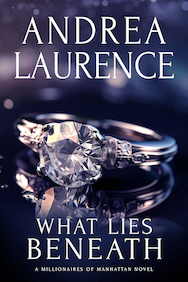
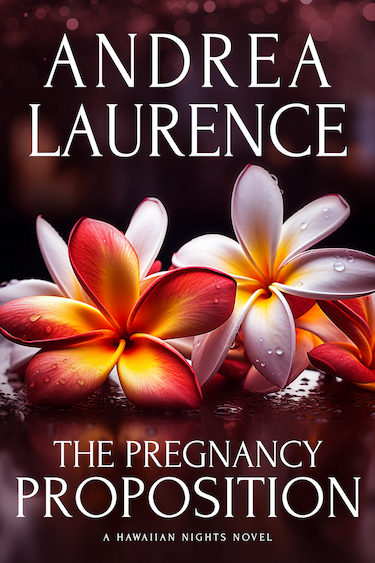


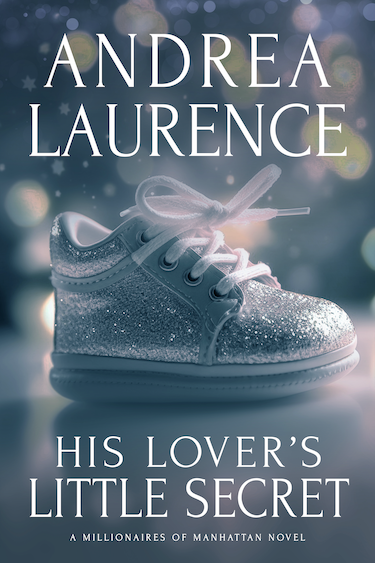

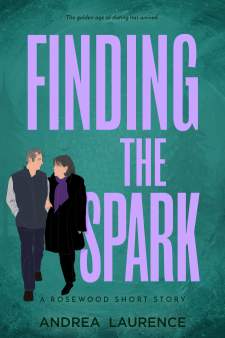
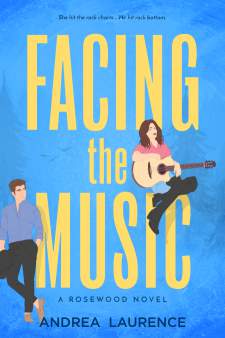
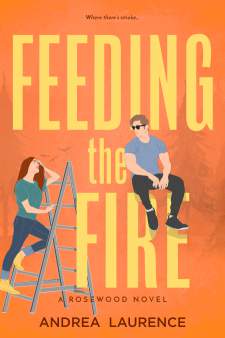
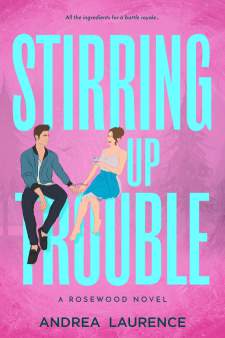




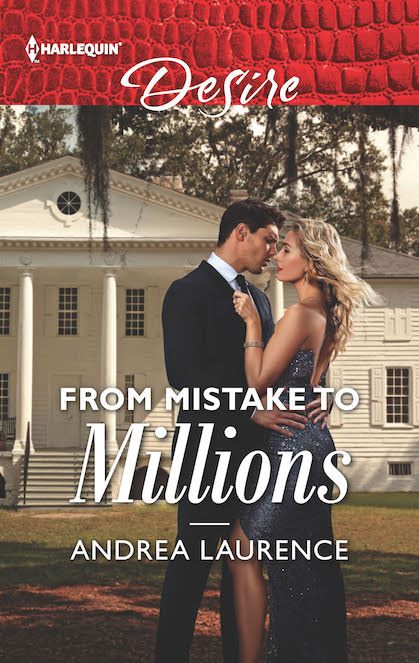




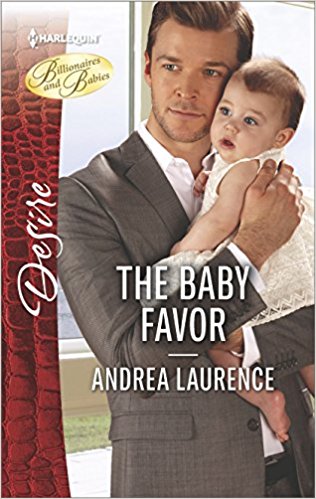



















Connect with me